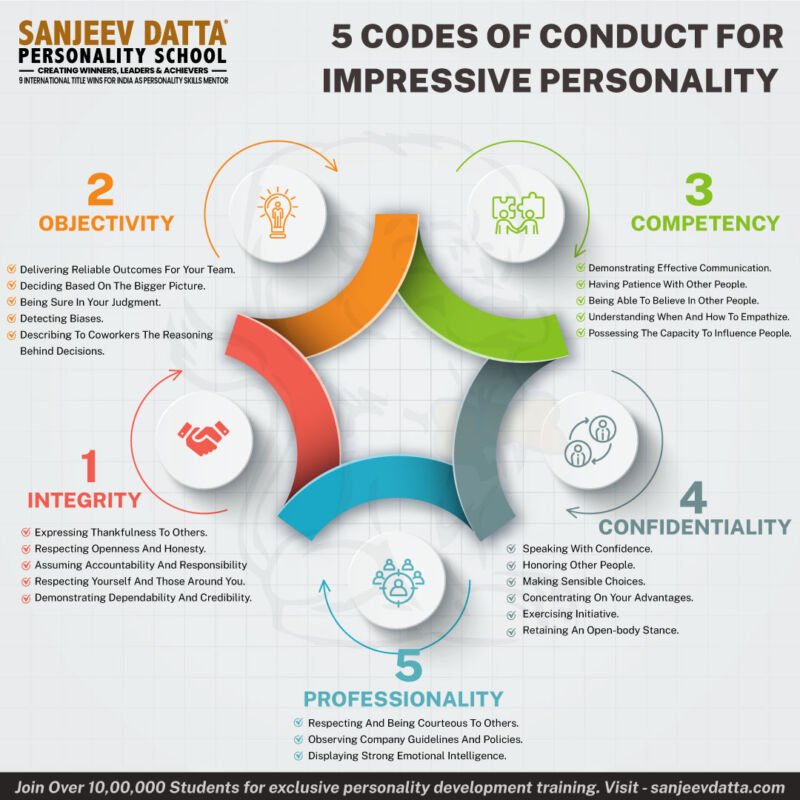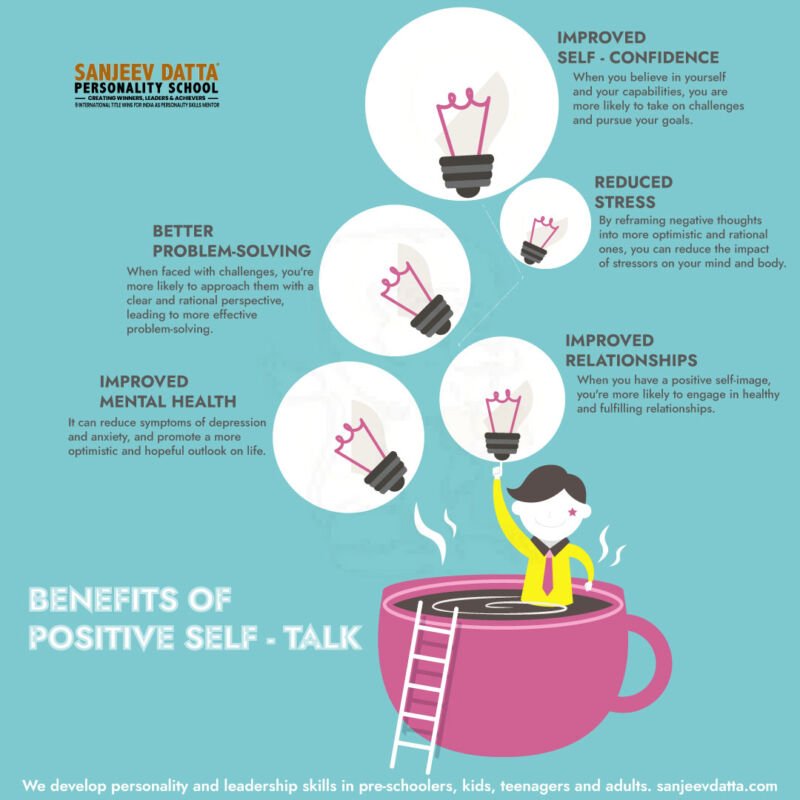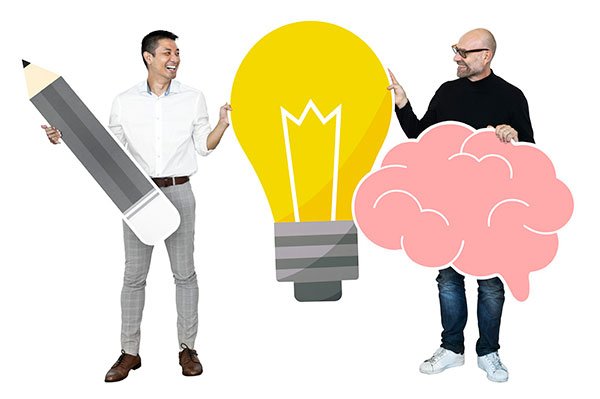Think your personality is set in stone after 30? Think again. Adult personality change isn’t just possible—it’s happening around you every day. That colleague who transformed from introverted to confident, your neighbor who shifted from pessimistic to optimistic, or even that friend who became more organized and focused—they all prove that our brains are far more flexible than we once believed. The science of neuroplasticity has revolutionized our understanding of personal transformation, showing us that we can literally rewire our brains for success at any age.
The Science Behind Adult Personality Change
Understanding Neuroplasticity in Adults
Your brain doesn’t stop changing when you hit 25, 35, or even 65. Neuroplasticity—the brain’s ability to form new neural connections and pathways—continues throughout your entire life. This groundbreaking discovery means that adult personality change isn’t just wishful thinking; it’s scientifically backed reality.
Research from Stanford University shows that adults who believe their personalities can change are more likely to experience positive transformations. When you shift from a fixed mindset to a growth mindset about your personality, you’re already taking the first step toward meaningful change.

The Five-Factor Model and Personality Flexibility
Psychologists identify five core personality traits:
- Openness to experience
- Conscientiousness
- Extraversion
- Agreeableness
- Neuroticism
Here’s the exciting part: studies reveal that all five traits can shift throughout adulthood. People naturally become more conscientious and agreeable as they age, but you don’t have to wait for natural evolution. You can actively guide these changes.
personality development for career change
Why Adults Seek Personality Change?
- Career Advancement and Professional Growth
In today’s competitive workplace, static personalities often mean static careers. Many professionals realize that developing better communication skills, emotional intelligence, or leadership qualities isn’t just nice to have—it’s essential for success.
Consider Sarah, a 38-year-old accountant who was passed over for promotion twice due to her reserved nature. Instead of accepting this limitation, she embarked on a journey of adult personality change, focusing on developing her extraverted qualities and communication skills. Within 18 months, she not only secured the promotion but became the department’s go-to person for client presentations.
2. Relationship Improvements
Personality traits significantly impact our relationships. Adults often seek change when they recognize patterns that sabotage their connections with family, friends, or romantic partners. Whether it’s becoming more patient, developing better listening skills, or learning to express emotions more effectively, personality development can transform your relationships.
3. Personal Fulfillment and Life Satisfaction
Sometimes, we simply outgrow our old selves. The personality that served you in your twenties might feel constraining in your forties. This natural evolution calls for intentional change—embracing new aspects of yourself while maintaining your core identity.
The Blueprint for Successful Adult Personality Change

Step 1: Self-Assessment and Awareness
Before you can change, you need to understand where you are. Take personality assessments like the Big Five or Myers-Briggs to establish your baseline. But don’t stop there—ask trusted friends and colleagues for honest feedback about your personality traits.
Reflection Questions:
- Which personality traits serve me well?
- What patterns hold me back from achieving my goals?
- How do others perceive me differently than I perceive myself?
Step 2: Set Specific, Measurable Goals
Vague goals like “be more confident” rarely lead to lasting change. Instead, define specific behaviors you want to develop or modify. For example:
- “I will speak up in at least two meetings per week”
- “I will practice active listening by asking follow-up questions in conversations”
- “I will volunteer to lead one project per quarter”
Step 3: Create Environmental Supports
Your environment plays a crucial role in personality change. Surround yourself with people who embody the traits you want to develop. If you’re working on becoming more optimistic, spend time with positive thinkers. If you want to become more organized, connect with highly structured individuals.

Proven Strategies for Adult Personality Change
Cognitive Behavioral Techniques
Adult personality change often starts with changing thought patterns. Cognitive Behavioral Therapy (CBT) techniques help you identify and modify the thoughts that drive unwanted behaviors.
Thought Record Exercise:
1. Notice negative or limiting thoughts
2. Examine the evidence for and against these thoughts
3. Develop balanced, realistic alternatives
4. Practice the new thought patterns consistently
Mindfulness and Meditation
Regular mindfulness practice creates space between stimulus and response, allowing you to choose new behaviors rather than defaulting to old patterns. Even 10 minutes of daily meditation can increase emotional regulation and self-awareness—two key components of personality change.
Behavioral Experiments
Psychology research shows that acting “as if” you already possess desired traits can actually develop them. This isn’t fake-it-till-you-make-it advice; it’s based on the principle that behavior change often precedes internal change.
Try these behavioral experiments:
- For increased confidence: Stand tall, make eye contact, and speak clearly for one week
- For better social skills: Initiate one conversation with a stranger daily
- For enhanced creativity: Spend 15 minutes daily on a creative activity

The Role of Personality Development Skills
Emotional Intelligence Enhancement
Developing emotional intelligence—the ability to understand and manage your emotions and those of others—is perhaps the most valuable personality development skills for adults. This includes:
- Self-Awareness Skills:
- Recognizing emotional triggers
- Understanding your impact on others
- Identifying personal strengths and growth areas
2. Social Awareness Skills:
- Reading non-verbal communication
- Empathizing with different perspectives
- Navigating social dynamics effectively
Communication and Interpersonal Skills
Strong communication forms the foundation of most personality improvements. Whether you’re naturally introverted or extraverted, developing these skills enhances your ability to connect with others:
- Active Listening: Focus entirely on the speaker, ask clarifying questions, and reflect back what you hear
- Assertiveness: Express your needs and boundaries clearly without being aggressive
- Conflict Resolution: Address disagreements constructively while maintaining relationships
Adaptability and Resilience
In our rapidly changing world, the ability to adapt and bounce back from setbacks is crucial. These skills help you navigate uncertainty while maintaining your desired personality changes:
Building Resilience:
- Develop a growth mindset about challenges
- Create strong support networks
- Practice stress management techniques
- Cultivate optimism through gratitude exercises

The Benefits of Personality Development Classes
- Structured Learning Environment
While self-directed change is possible, personality development classes offer structured approaches that accelerate transformation. These programs provide:
- Systematic Skill Building:
Professional instructors guide you through proven methodologies, ensuring you don’t miss critical steps in your development journey. - Peer Learning Opportunities:
Classes connect you with like-minded individuals facing similar challenges. This community aspect provides motivation, accountability, and diverse perspectives on growth strategies.
2. Expert Guidance and Feedback
Qualified instructors can identify blind spots you might miss when working alone. They provide objective feedback and help you avoid common pitfalls in personality development.
What to Look for in Quality Classes:
- Certified instructors with psychology or coaching backgrounds
- Evidence-based curriculum
- Small class sizes for personalized attention
- Practical exercises and real-world applications
- Follow-up support and resources
Ready to transform your personality and unlock your potential? Consider enrolling in professional personality development classes where you’ll gain structured guidance, peer support, and expert feedback. Don’t wait for someday—your best self is waiting to emerge, and the perfect time to start is now.
3. Accountability and Motivation
Group settings naturally create accountability. When others are aware of your goals, you’re more likely to follow through on commitments. The social aspect also makes the change process more enjoyable and sustainable.
Overcoming Common Obstacles
1. The Authenticity Concern
Many adults worry that changing their personality means losing their authentic self. This fear stems from misunderstanding what personality change involves. You’re not becoming someone else—you’re becoming the best version of yourself.
Reframe the Process:
- Think of personality change as expansion rather than replacement
- Focus on adding new skills while maintaining core values
- Remember that growth is a natural part of human development
2. Dealing with Resistance from Others
As you change, some people in your life might resist these transformations. They may prefer the “old you” or feel threatened by your growth. This is normal but challenging.
Strategies for Managing Social Resistance:
- Communicate your goals and reasons for change
- Be patient with others’ adjustment period
- Set boundaries if others try to sabotage your progress
- Seek support from those who encourage your growth
3. Maintaining Motivation During Plateaus
Personality change isn’t linear. You’ll experience periods of rapid progress followed by plateaus or even temporary setbacks. Understanding this pattern helps you maintain motivation through challenging phases.
Plateau Management Techniques:
- Celebrate small wins and progress markers
- Adjust strategies if current approaches aren’t working
- Seek additional support or resources
- Remember that plateaus often precede breakthrough moments
signs your are in the wrong career
Measuring Progress and Maintaining Changes
1. Tracking Systems and Metrics
Adult personality change requires consistent monitoring to ensure you’re moving in the right direction. Develop simple tracking systems that don’t become burdensome:
Weekly Check-ins:
- Rate your progress on specific goals (1-10 scale)
- Note situations where you successfully applied new behaviors
- Identify areas needing more attention
Monthly Reviews:
- Reflect on overall patterns and trends
- Gather feedback from trusted friends or colleagues
- Adjust goals and strategies based on what you’ve learned
2. Long-term Maintenance Strategies
Sustaining personality changes requires ongoing attention, even after achieving initial goals. Build these maintenance practices into your routine:
Continuous Learning:
- Read books related to your development areas
- Attend workshops or refresher courses
- Stay connected with your growth community
Regular Practice:
- Schedule time for practicing new behaviors
- Seek opportunities to apply your skills
- Challenge yourself with progressively difficult situations
Real-Life Success Stories
1. From Perfectionist to Adaptive Leader
Mark, a 42-year-old engineering manager, struggled with perfectionism that paralyzed his team’s productivity. Through targeted personality development skills training, he learned to embrace “good enough” solutions and delegate effectively. His team’s innovation increased by 40% within six months, and employee satisfaction scores improved dramatically.
2. Transforming Social Anxiety into Confident Networking
Lisa, a 35-year-old marketing professional, avoided networking events due to social anxiety. By joining personality development classes focused on social skills, she gradually built confidence through structured practice. She now leads industry workshops and has expanded her professional network tenfold.
3. From Reactive to Emotionally Intelligent
David, a 45-year-old father and executive, recognized that his reactive communication style was damaging both professional and personal relationships. Through consistent practice of emotional regulation techniques, he transformed his approach to conflict. His marriage improved significantly, and he was promoted to vice president within a year.
Frequently Asked Questions
Q. How long does adult personality change take?
Adult personality change varies by individual and the specific traits being developed. Minor behavioral changes might be noticeable within weeks, while significant personality shifts typically require 6-18 months of consistent effort. The key is patience and persistence—sustainable change takes time.
Q. Can personality change be permanent?
Yes, but it requires ongoing maintenance. Just like physical fitness, personality changes need continued practice to remain strong. The neural pathways you create through new behaviors become more established over time, making the changes feel more natural and automatic.
Q. Is it too late to change personality after age 50?
Absolutely not! While younger brains may adapt slightly faster, research shows that adult personality change is possible at any age. Many people experience their most significant personal transformations in their 50s, 60s, and beyond, often driven by major life transitions or newfound self-awareness.
Q. What’s the difference between personality change and mood changes?
Personality change refers to lasting alterations in your typical patterns of thinking, feeling, and behaving across various situations. Mood changes are temporary emotional states that fluctuate throughout the day. True personality change involves consistent new patterns maintained over months or years.
Q. How do I know which personality traits to focus on changing?
Start by identifying areas where your current traits create obstacles to your goals or well-being. Consider feedback from others, reflect on recurring challenges, and think about the person you want to become. Focus on one or two traits at a time rather than attempting wholesale personality overhaul.
Conclusion: Your Personality Evolution Starts Now
Adult personality change isn’t just possible—it’s one of the most empowering journeys you can undertake. The science is clear: your brain remains capable of remarkable transformation throughout your entire life. Whether you’re seeking career advancement, better relationships, or personal fulfillment, the power to change lies within your reach.
Remember, you don’t need to completely reinvent yourself. Small, consistent changes in how you think, feel, and behave can create profound transformations over time. The key is to start where you are, use what you have, and take action today.
Your personality shaped your past, but it doesn’t have to define your future. With the right strategies, support systems, and commitment, you can literally rewire your brain for success. The question isn’t whether adult personality change is possible—it’s whether you’re ready to begin your transformation journey.
Take the first step today. Your future self will thank you for the courage to change, grow, and become who you’re truly meant to be.


